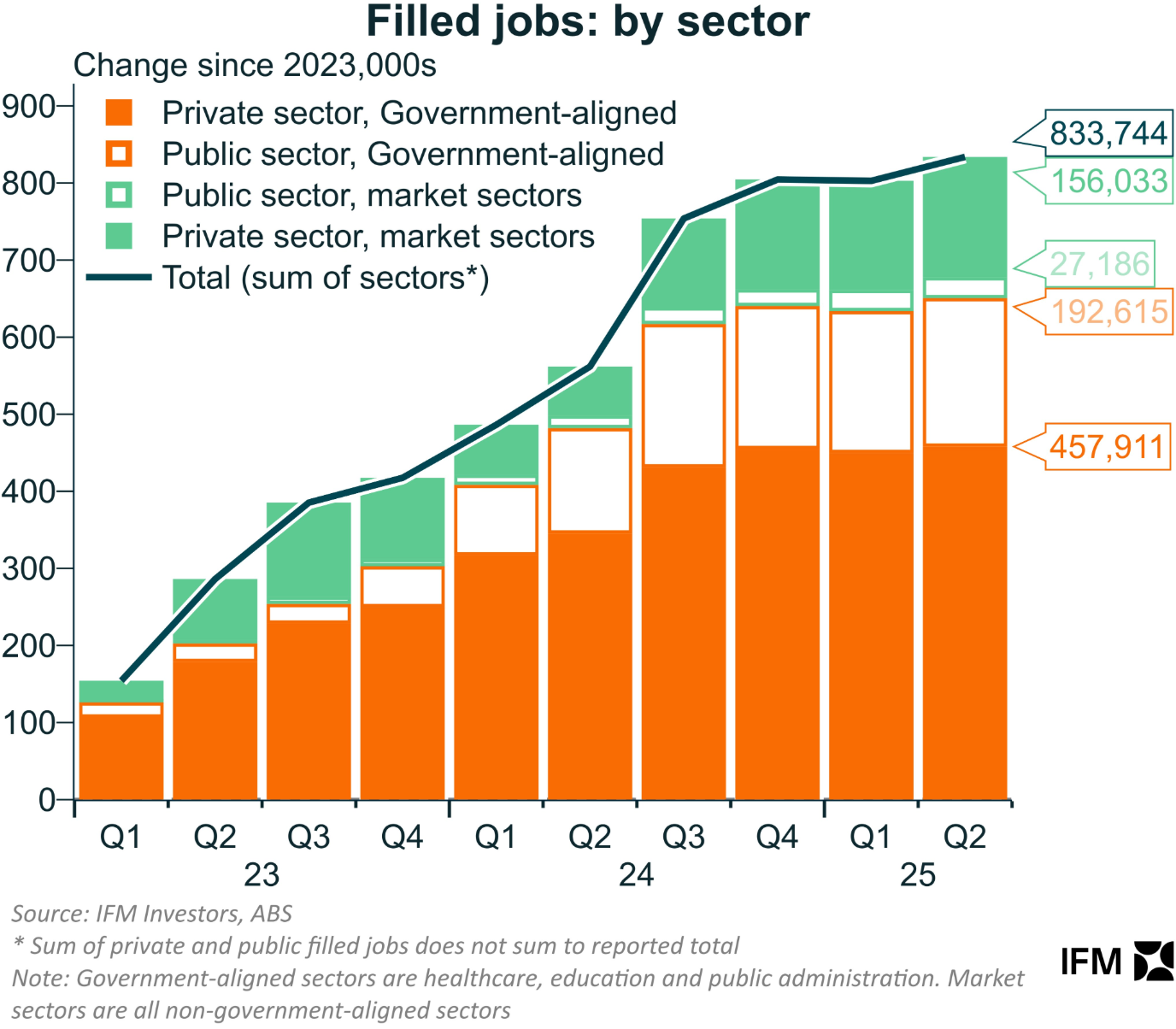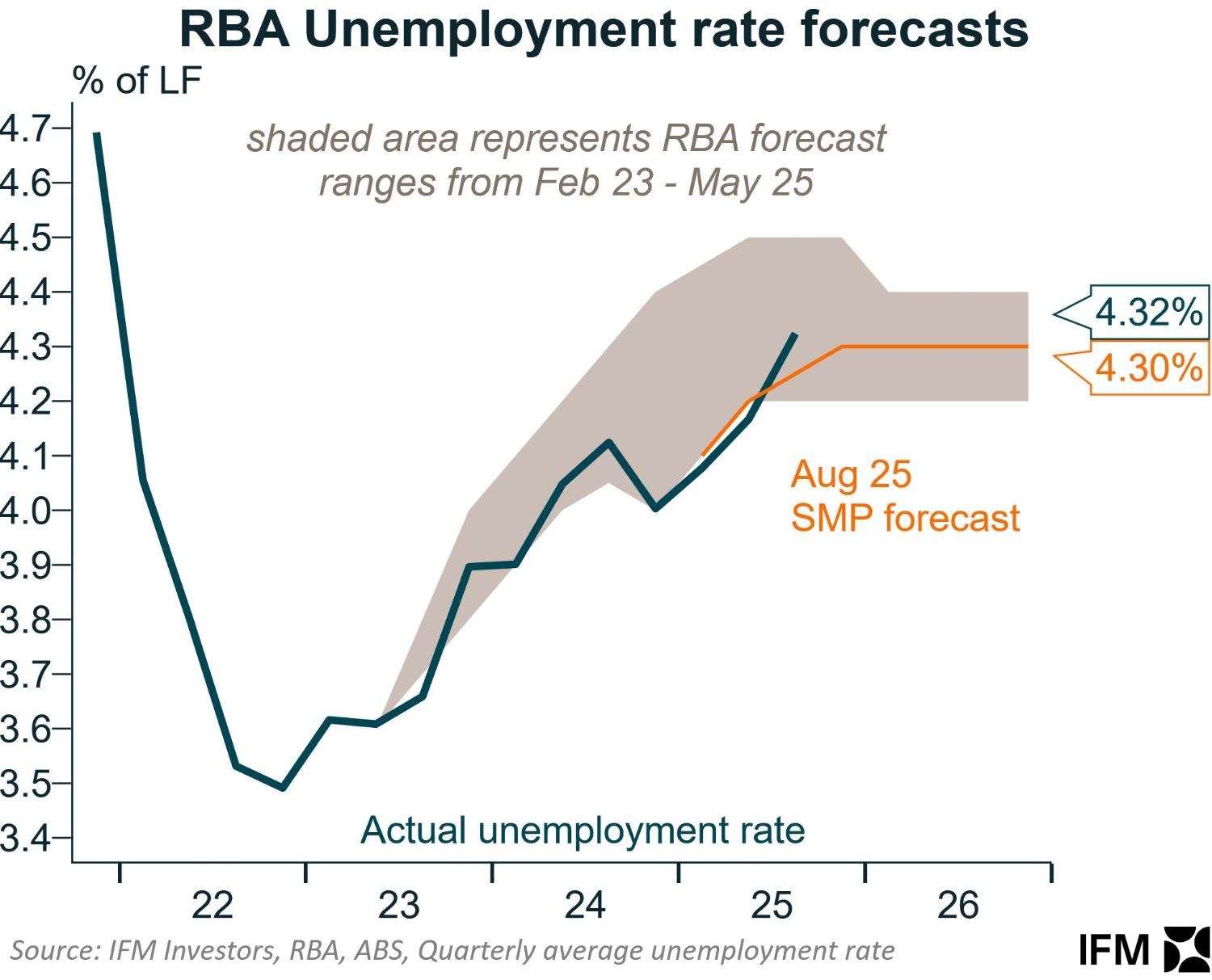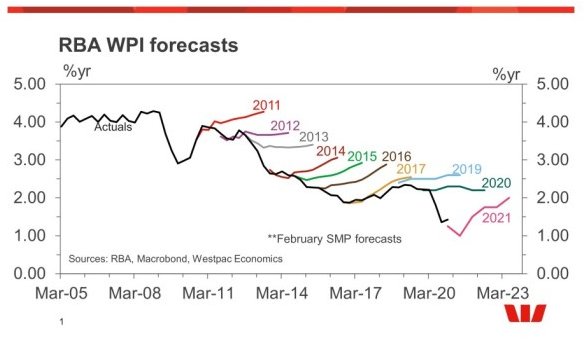Under progressive leadership regimes, the Australian central bank has become ever more corrupt and unable to speak truth to power, especially when it comes to the single most important macroeconomic input into the economy: immigration.
Just this week, we had another analysis from RBA boffin Sarah Hunter, which refused to acknowledge the obvious: the immigration-led economy does neither productivity nor wage rises.
This leaves it struggling to sustain an inflation pulse. Goldman wrapped up her speech:
RBA Assistant Governor (Economic Group) Hunter has delivered a speech and media interview highlighting recent RBA downgrades to forecasts for productivity growth, potential growth, and sustainable wages growth – alongside concerns about upside risks to the RBA’s inflation forecasts.
Dr Hunter’s remarks also linked a re-strengthening in prices for market-services in August to the RBA’s view that the labour market remains “a little tight”.
Taken together, we view the Assistant Governor’s comments as confirming a less dovish tone at the RBA over recent weeks.
While Dr Hunter stressed that the RBA is highly data dependent, her remarks suggest upgrades to the RBA’s growth & inflation forecasts at November’s Statement on Monetary Policy.
There was also little focus on downside scenarios to the labour market or inflation or the clear easing biase mbedded in the RBA’s standing forecasts (from August).
The productivity revisions also suggest the RBA’s reaction function will be both less sensitive to weaker economic growth and more sensitive to firm wages.
What firm wages? What tight labour market? Leading indicators are falling, and wages will have a two-handle before long as Indian Albo floods the Labor market with cheap imports again.

Just as jobs-centric fiscal spending falls away:

Q3 inflation did not come from wages. It came from a new energy shock spilling into everything except wages.

The refusal to factor the immigration and labour supply shock into modeling leaves the RBA forever raising unemployment and undershooting the inflation target.

For twelve long years, the RBA has persecuted Aussie workers with its productivity claptrap because it refuses to discuss the macroeconomic impact of immigration.

In fact, without reference to the actual economic model it is managing, the RBA refuses to discuss anything about the future anymore. Goldman.
Governor Bullock also characterised current monetary policy settings as “a little on the tight side, but not that much” and revisited her reluctance to give forward guidance (describing herself as “gun shy” following the experience of her predecessor Dr. Lowe)
It’s not rocket surgery. Weak productivity does not convert to stronger inflation if a permanent labour supply shock causes it.
That is the immigration-led economy.

